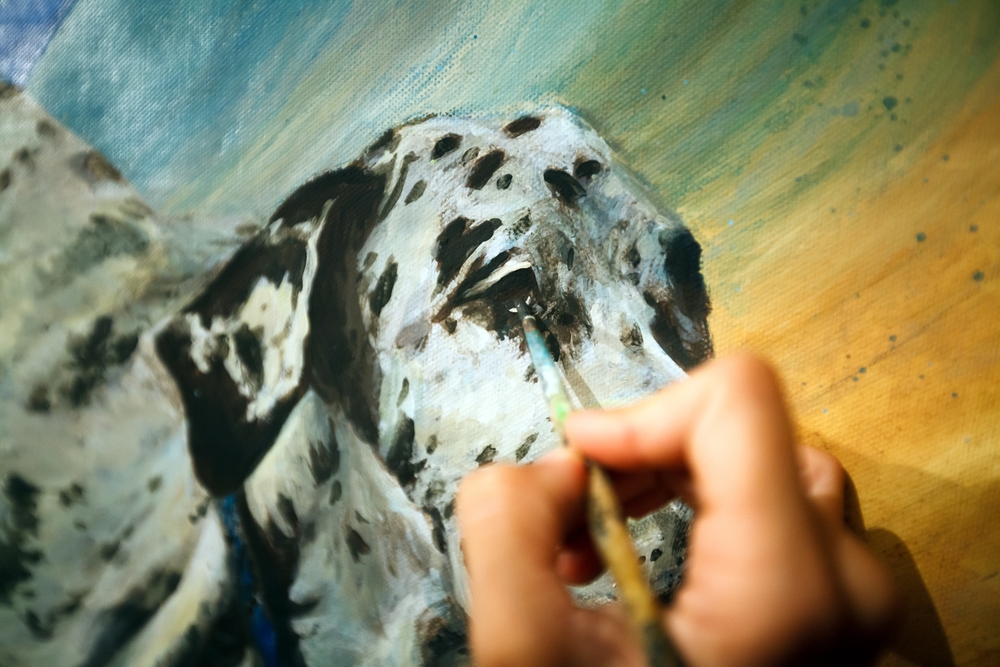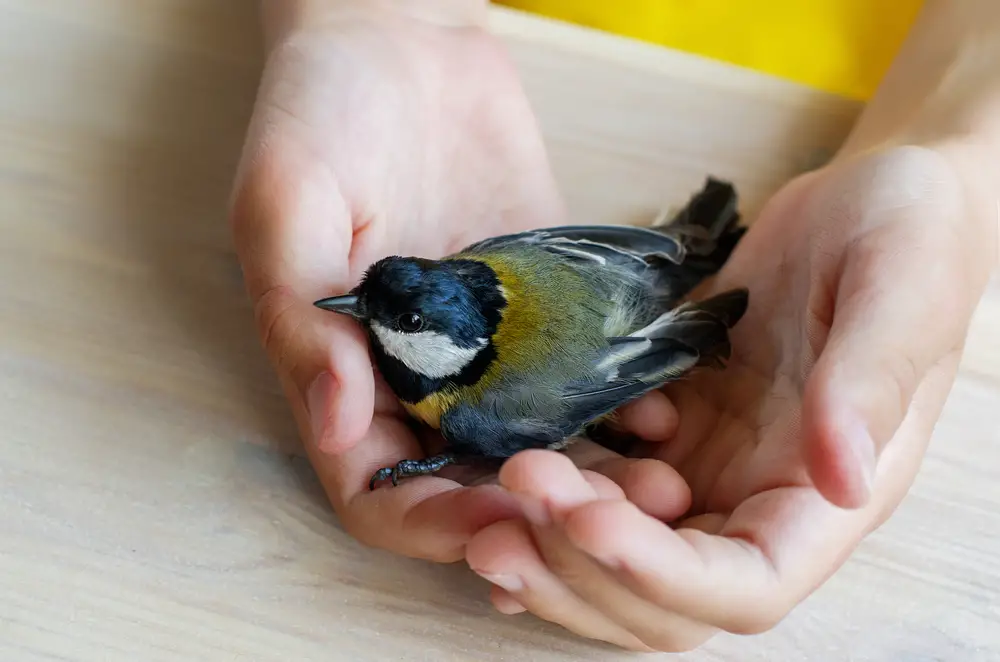There’s a fascinating connection bridging our modern lives with ancient history, one that you might not even realize you’re carrying in your DNA. Neanderthals, our distant relatives, left a surprising legacy in the genetic tapestry of many people today. If you’ve ever wondered why you exhibit certain odd traits while others don’t, it might be time to look back, way back, to your Neanderthal ancestors. Here are 13 quirky traits that could indicate you’ve got a touch of Neanderthal in your genes.
1. A Surprising Tolerance for Pain

Ever notice how you seem to handle pain better than those around you? You might just have your Neanderthal ancestors to thank for that. Neanderthals lived tough lives, and their survival depended on a heightened pain threshold. Recent studies, such as one reported in the journal Current Biology, found that Neanderthal DNA in some people is linked to a higher pain tolerance due to a specific brain receptor.
This genetic legacy means you might find yourself sailing through situations others find unbearable. Whether it’s getting a tattoo, enduring a long workout, or simply dealing with life’s bumps and bruises, your ability to handle discomfort might set you apart. It’s not about being stoic or ignoring the pain, but rather experiencing it differently. So, next time you shrug off a stubbed toe, consider it an ancestral gift.
2. A Love for the Outdoors

Do you feel an almost magnetic pull to the great outdoors? Neanderthals lived in harmony with nature, and that connection might linger in those with a genetic link. While others might prefer the comforts of indoor living, you could be the one who craves the fresh air and wide-open spaces. It’s as if your DNA is whispering a woodland lullaby, urging you to explore.
This trait might manifest in various ways, from a love of hiking to a passion for gardening. Being outside might feel more like a necessity than a choice, providing a sense of grounding and calm. It might also explain why you feel recharged after a weekend in the woods rather than a night in the city. Nature, for you, isn’t just a place to visit—it’s a place you belong.
3. A Nose Built for Cold Climates

If you’ve ever been told you have a distinctive nose, it might be more than just a family trait. Neanderthals evolved to survive in cold climates, and their noses were particularly adapted for this purpose. Research published in Nature Communications suggests that the shape of your nose could be designed to warm up and humidify the air you breathe, a trait passed down from these ancient relatives.
This anatomical feature doesn’t just affect your appearance; it impacts how your body responds to cold weather. You might find that you breathe easier in chilly conditions, or perhaps you have an uncanny ability to handle frigid temperatures with ease. It’s not that you’re impervious to cold, but your body is simply better suited to it. So, while others bundle up, you might just find yourself relishing a brisk winter breeze.
4. A Predisposition for Baking

Do you have a knack for baking, or perhaps an inexplicable love for bread? Neanderthals were some of the earliest bakers, using primitive techniques to create hearty meals. This ancestral trait might manifest in modern-day kitchen adventures, where your bread always seems to rise just right. It’s as if your hands remember the rhythm of kneading dough, an ancient craft passed down through generations.
Your passion for baking might be more than just a hobby—it could be a genetic echo. You might find comfort in the process, the tactile experience of mixing, kneading, and shaping. The smell of freshly baked bread might evoke a sense of nostalgia, tying you to an ancient past. Whether it’s sourdough or banana bread, your culinary creations are a testament to history.
5. A Unique Sleep Pattern

Ever find your sleep patterns diverging from the norm? You might blame that on your Neanderthal heritage. Research from the American Journal of Human Genetics indicates that Neanderthal DNA can influence circadian rhythms, leading to unusual sleep patterns. This might mean you’re wide awake when others are sleeping, or perhaps you require less sleep than most people.
This genetic quirk might make conventional 9-to-5 routines challenging. You could be a night owl, finding productivity peaks after dark. Alternatively, you might wake up ready to tackle the day before the sun even rises. Understanding this trait can help you tailor your schedule to your natural rhythms, making life a little easier and more in sync with your genetic predisposition.
6. A Flair for Artistic Expression

Have you ever felt a deep, unyielding urge to create? Neanderthals were among the first artists, leaving behind cave paintings and carvings. If artistic pursuits come naturally to you, it might be more than just talent—it could be a Neanderthal trait. This ancient flair for creativity might manifest in your life through painting, music, or even writing.
Creativity isn’t just about producing art; it’s a way of seeing the world. You might find beauty in unexpected places or feel compelled to express yourself through various mediums. This trait not only enriches your life but also connects you with an age-old lineage of artists. Embracing your creative side can be a way of honoring that legacy, making art as timeless as your genes.
7. A Strong Sense of Empathy

Do you find yourself deeply affected by the emotions of those around you? This heightened sense of empathy might be traced back to your Neanderthal genes. According to a study published in Nature Ecology & Evolution, certain Neanderthal DNA variants are associated with increased empathy and emotional intelligence. This trait would have been crucial for survival in tightly-knit Neanderthal communities.
Empathy allows you to connect with people on a profound level, offering support and understanding. You might find yourself naturally tuned into others’ needs, often before they even voice them. While this can be emotionally taxing, it also enriches your relationships, creating strong bonds with those you care about. Embracing this empathetic nature can enhance not only your life but also the lives of those around you.
8. A Strong Jawline

If you’ve ever been complimented on your jawline, you might owe that to your ancient relatives. Neanderthals had robust features, including strong jawlines, developed through their tough, meat-heavy diets. This feature might be more than just aesthetically pleasing; it could indicate an inherited trait from your prehistoric ancestors. Your jawline might reflect the resilience and strength required to survive in harsh environments.
Beyond its visual appeal, a strong jaw can have practical benefits. It might contribute to better dental health, supporting your teeth and reducing the risk of certain issues. You might also find that you have a natural affinity for chewing tougher foods that would challenge others. So, next time you hear a compliment about your jawline, smile and give a nod to your Neanderthal genes.
9. A Preference for Simplicity

Do you find yourself drawn to simple, minimalist living? Neanderthals lived in a world where simplicity was a necessity, not a choice. This preference might manifest in your life as a love for decluttered spaces or streamlined routines. It’s as if you inherently understand the beauty of less being more, valuing function over flash.
Your lifestyle might focus on essential items, shunning excess in favor of practicality. This doesn’t mean you lack appreciation for finer things; rather, you choose to prioritize what truly matters. By embracing simplicity, you create a sense of calm and order in your environment. It’s a lifestyle that not only suits modern minimalism but also echoes an ancient understanding of living well.
10. A Resilient Spirit

Do you bounce back quickly from setbacks? This resilient spirit might be an echo of your Neanderthal lineage. Neanderthals thrived in challenging conditions, developing a toughness that allowed them to adapt and survive. This inherited resilience might manifest in your ability to handle stress, overcome adversity, and keep moving forward.
Your resilience isn’t just about enduring; it’s about thriving despite challenges. You might approach obstacles as opportunities, learning and growing with each experience. This mindset not only benefits you personally but also inspires those around you. In a world where change is constant, your resilient spirit is a valuable asset, grounded in an ancient legacy.
11. A Keen Sense of Direction

Do you often know exactly where you’re going, even in unfamiliar places? This uncanny sense of direction might be another nod to your Neanderthal DNA. Neanderthals were nomadic, traveling vast distances without modern navigation tools. This trait could be a genetic gift, allowing you to navigate the world with confidence and ease.
Your directional instincts might extend beyond physical spaces to life’s journey as well. You could be the friend who always knows which path to take or see the big picture when others feel lost. This trait not only aids in travel but also in decision-making, providing a sense of clarity and purpose. As you navigate modern life, this ancient skill remains a reliable guide.
12. A Sensitive Scalp

Do you find yourself wincing at a tight ponytail or hat? A sensitive scalp might be more than just a quirk; it could be linked to your Neanderthal genes. Neanderthals had thicker hair, which might contribute to a heightened sensitivity in some people today. This trait can make common hairstyling choices a bit more uncomfortable than for others.
A sensitive scalp can be more than a minor inconvenience; it might require you to approach hair care differently. You might prefer looser hairstyles or gentler products to avoid discomfort. By understanding this trait, you can tailor your routine to better suit your needs. It’s a reminder that even the smallest details of our bodies carry echoes of ancient lives.
13. A Love for Cozy Spaces

Do you find comfort in small, cozy spaces rather than vast, open ones? Neanderthals lived in caves and small shelters, a preference that might still linger in your DNA. This love for coziness can manifest in a preference for snug nooks, warm blankets, and intimate gatherings. It’s as if your genes remember the safety and security of a well-protected space.
Creating a cozy environment might not just be about comfort; it could be an instinctual need. You might find that these spaces offer a sense of peace and protection, providing a retreat from the world. Embracing this trait allows you to create a sanctuary that feels both modern and timeless. It’s a small yet significant way your ancient ancestry influences your everyday life.
